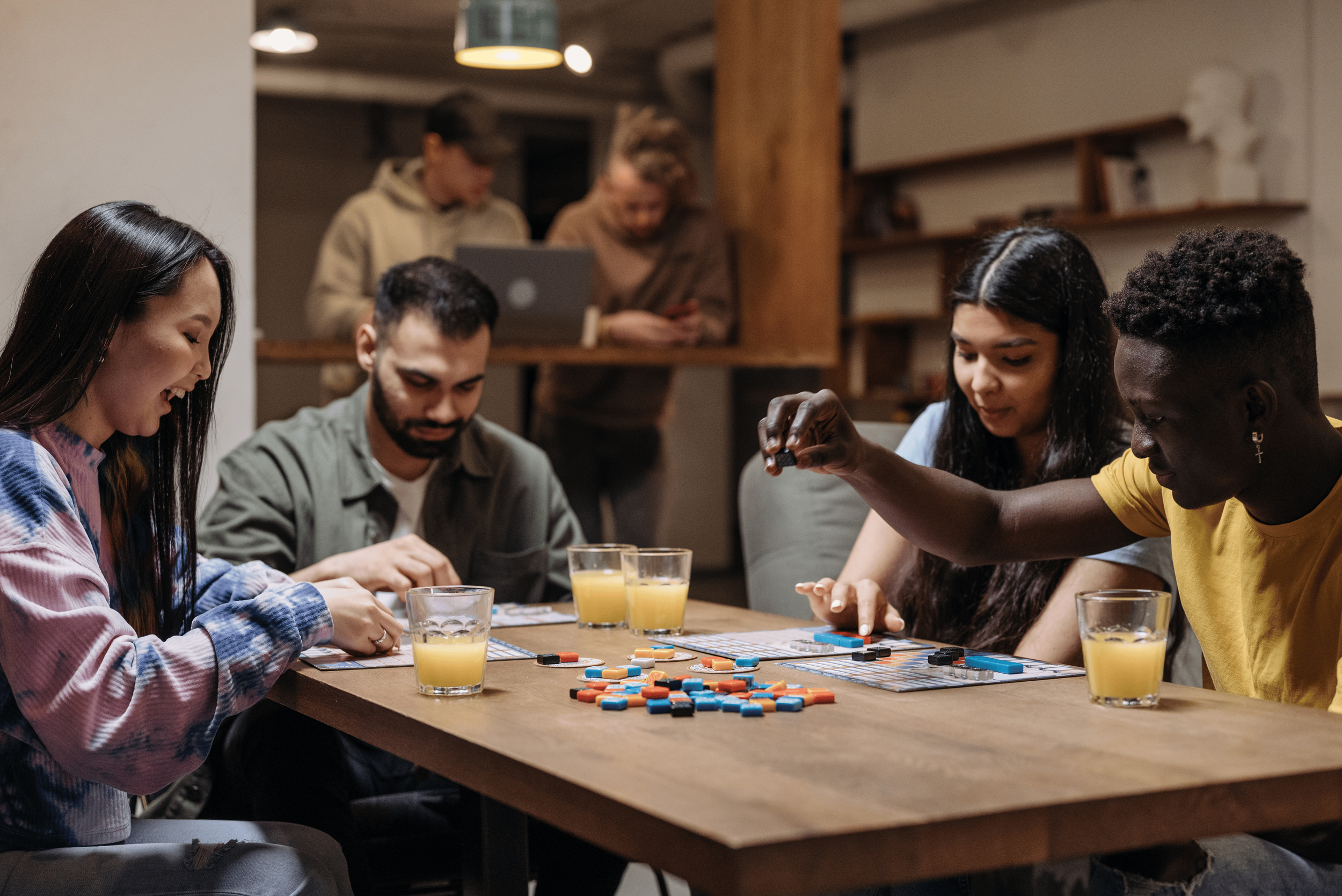Joy activism is a job for superheroes of all ages!
Life seems particularly extra these days. Between climate change impacts, social upheaval, and political tensions, the problems often feel overwhelming. The struggles of hopelessness, helplessness, and anxiety about the future is real. Sometimes, the urge to curl up in a ball and wait for someone else to fix everything seems like a legit course of action.
While I’m tempted to do the same—and sometimes do (albeit temporarily)—we all know that avoidance doesn’t really help.
So, I’ve been reflecting on how we can sustain ourselves, both as individuals and as a society, through tough times. And what keeps coming to mind is joy and delight. How can we cultivate and pay attention to those lighter moments that sneak into our lives? How do we create more of them?
When overwhelmed and exhausted, rest is important, but we also want to get back up off that couch.
The Ultimate Rebellion: Choosing Joy Amidst Chaos
The ultimate rebellion in the face of challenging circumstances is to not get pulled down. Meeting insecurity, ignorance, greed, and hatred with more anger and negativity only compounds the problem, leading to cycles of conflict. (I mean, have we ever ended war through more war?) But it’s actually the opposite—joy, gratitude, play, and curiosity—that enacts lasting, healthy change. These elements inspire us to hope, think outside the box, create, and act in alignment with our values.
I know these qualities are often the first to go for me when confronted with difficult challenges. Serious times feel like they call for a serious face—no laughing, no goofing around, no lightheartedness. It can feel wrong to enjoy life when so much suffering exists in the world. But then I realize: “all work, no play” isn’t just a cute saying—it’s a truth that applies to our mental health.
The Importance of Play and Creativity in Mental Health
In fact, all work and no play leads to burnout, reduced creativity, and social disconnection. This actually makes us less effective at solving problems and contributing to positive change. Play and rest are not frivolous pursuits; they are essential for sustainable energy and innovative solutions.
I should know. As someone who’s studied and participated in mindfulness and ecotherapy practices, I can tell you that creativity and joy are key to personal and collective well-being. But even with all this knowledge, I occasionally forget how important it is to nurture the playful and joyful aspects of life.
Playing at work increases connection and problem solving capabilities.
Making Room for Joy in Tough Times
So, how do we incorporate joy and mindfulness into our lives, especially when things feel heavy? The first step is to approach this practice authentically. This means acknowledging discomfort, feeling the difficult emotions, and facing the real problems at hand. Toxic positivity doesn’t help anyone.
Instead, engage with the feelings—express them in healthy ways, gather the facts, and reach out for support. But don’t get stuck there, wallowing in self-pity.
Practice Gratitude and Mindfulness
Next, find the joy that already exists in your life. Start practicing gratitude. Look for things and people you love, and cherish those moments. Pay attention to the simple things we often take for granted. Really taste your food. Feel your feet on the ground. Revel in the sunlight. Listen to birds singing.
Birds singing is a huge one for me. Although I can’t identify the birds to save my life, hearing them sing fills me with hope. Life still goes on. This act of savoring the moment is essentially a mindfulness practice. It's about being fully present and engaged with the here and now.
Sometimes, I remind myself: What if this were the last time I experienced this moment? What memory would I want to have? Even in the most mundane moments, I try to find beauty and meaning.
Gratitude for even the “smallest” things can make a huge difference, and it’s much easier to practice out in nature.
Build Joy into Your Routine and Work
Once you begin to practice gratitude and mindfulness, it’s important to build joy into your schedule. Include activities that light you up—whether that’s physical movement (exercise or dance), conversations with loved ones, or simply going for a walk in nature. These things are just as important—if not more important—than work, school, or family obligations.
One great way to incorporate joy into your work or community activism is to start with a lighthearted activity. Begin meetings with a brain teaser, share a joke, or do a fun team-building exercise. You could also take an afternoon off for a bowling session or even add a playful twist to protests or rallies—like handing out brightly colored stickers or dancing while you march.
Mindfulness as a Tool for Activism and Mental Health
Remember: activism and engagement are marathons, not sprints. Even in the healthiest, happiest world imaginable, we will always face difficulties and suffering. Balancing those moments with mindfulness, joy, and play is essential to maintaining our mental and emotional health.
We can play and get creative in our activism.
As a mindfulness practitioner, I’ve discovered that when I approach challenges with humor, creativity, and a lighter heart, I’m often more effective in solving problems and finding peace. Mindfulness has also taught me to appreciate difficult times, as they remind me that I’m still alive, and they make me stronger.
The Role of Humor and Creativity in Social Change
This doesn’t mean we should allow harmful behaviors from others. However, approaching these challenges from a gentler place—one that incorporates humor and creativity—can be more disarming and more effective in bringing about the changes we want. Ultimately, what we all want isn’t to be “right,” but to be happy and fulfilled.
So, I invite you to join me in practicing joy activism—intentional acts of delight and mindfulness as a way to combat life’s hardships. You may be surprised at how this shift can create a ripple effect, leading to both personal and collective transformation.
Written by Amanda Stemen, MS, LCSW





